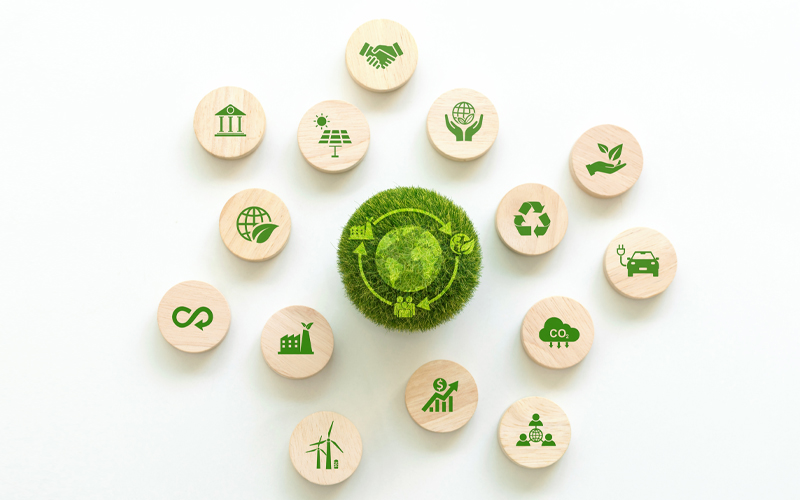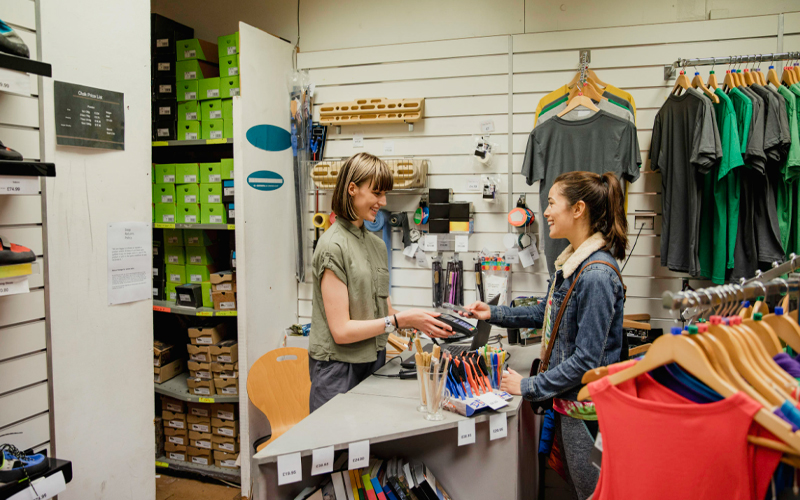Environmental activist Greta Thunberg in a speech at the World Economic Forum in 2019 said:
“We all have a choice. We can create transformational action that will safeguard the living conditions for future generations. Or we can continue with our business as usual and fail.”
We all have an inkling that the amount of waste generated by industries across the world must run into billions of tonnes and, well, it does. In fact, according to the World Bank, 2.01 billion tonnes of municipal solid waste are generated every year! What is especially concerning is that waste generated by the consumer-packaged goods (CPG) industry has the most plastic tonnage at a staggering 14.5 million tonnes back in 2018 and growing every year!
The CPG sector has been feeling pressure from governments, investors and consumers to take proactive steps to ensure the reduction in the degradation of the environment due to their operations. A move towards operating more sustainably is recognized no longer as an option but an absolute imperative for the success of these businesses.
So, what are some of the strategies that companies in the CPG sector could adopt in their operations to lessen the pressure on the environment?
Move towards a circular economy.
Our current economy promotes the use of products after which the products are thrown away as waste. We have been following the traditional linear take-make-use-dispose model of consumption for decades. This has led to enormous amounts of waste being generated. On the other hand, a circular economy essentially involves reusing, recycling, repairing and regenerating products and materials for as long as possible, in order to reduce the carbon footprint of the product. Several companies are taking a proactive stand to build a circular economy to show their commitment towards a greener planet. An example is the British multinational behemoth Unilever, which has set itself an ambitious goal of establishing a circular economy for all plastics generated by it, by the year 2025.
Embrace technology to drive sustainability.
Business intelligence and data analytics can be put to optimum use to drive sustainability. Machine learning can be used to provide visibility for resource planning. Added to that, technologies such as blockchain, in conjunction with, IoT (Internet of Things) make it possible to identify and track damages (specifically in the food supply chain). In fact, retail giant Walmart is using IoT technology on a huge scale to help with energy savings, improved food quality and to keep costs low.
Adopt sustainable packaging.
We live in a world where people are aware and conscious of their immense responsibility to the environment. This has prompted a worldwide cry for sustainable packaging with many consumers gravitating towards companies that use eco-friendly packaging for their products. Sustainable packaging, apart from having the obvious benefit of being biodegradable, also requires less effort for transportation (due to being lighter), and is most often free of toxins and allergens.
Optimise the supply chain.
Optimising the supply chain is one of the best ways to reduce the burden on the environment. Sustainability efforts need to be implemented across the supply chain – right from the responsible sourcing of raw materials for the products to their storage to the last-mile delivery of the products. Software packages for supply chain management can pull up relevant analytics and give deeper visibility into supply chains. This can help determine areas where the supply chain operations for CPG industry can be improved, leading to a more robust, and greener setup.
Key Takeaways on Sustainability in CPG and Leveraging Data for Personalization
In conclusion, building sustainability into the value chain requires companies to genuinely commit to the betterment of the environment and make the requisite investments. By implementing more eco-friendly practices, the CPG industry can mitigate the adverse impact of its operations on the surroundings. Embracing sustainability not only paves the way for a cleaner and better future, but also enhances brand reputation and drives deep impact through long-term business growth.
Integrating sustainability into the value chain is crucial for the CPG outsourcing industry to address environmental challenges effectively. By prioritising eco-friendly practices and making necessary investments, companies can contribute to a cleaner future while reaping the benefits of improved brand reputation and long-term business growth. By taking these steps, the industry can demonstrate its commitment to the environment and inspire positive change across the entire value chain.For organizations on the digital transformation journey, agility is key in responding to a rapidly changing technology and business landscape. Now more than ever, it is crucial to deliver and exceed on organizational expectations with a robust digital mindset backed by innovation. Enabling businesses to sense, learn, respond, and evolve like a living organism, will be imperative for business excellence going forward. A comprehensive, yet modular suite of services is doing exactly that. Equipping organizations with intuitive decision-making automatically at scale, actionable insights based on real-time solutions, anytime/anywhere experience, and in-depth data visibility across functions leading to hyper-productivity, Live Enterprise is building connected organizations that are innovating collaboratively for the future.









